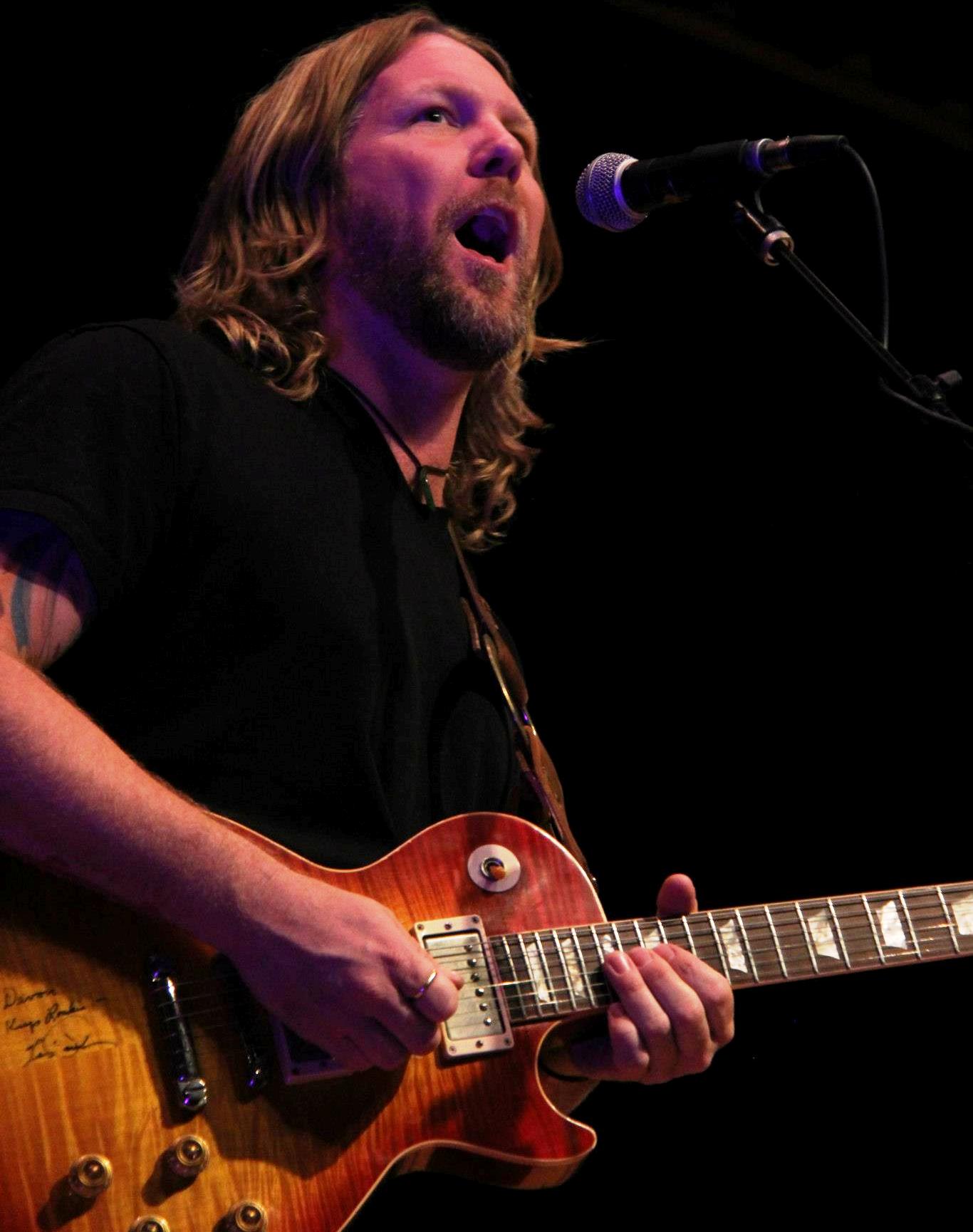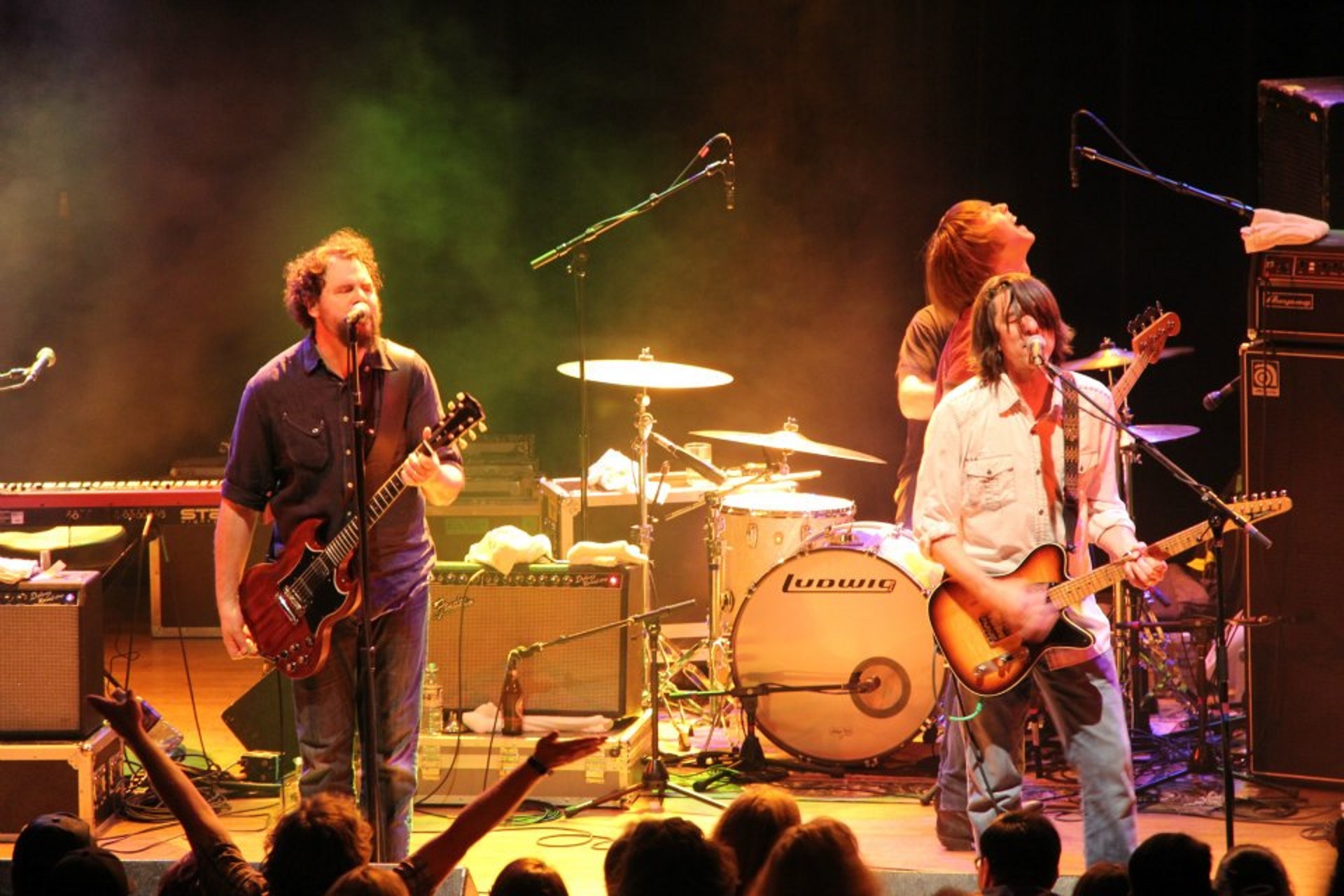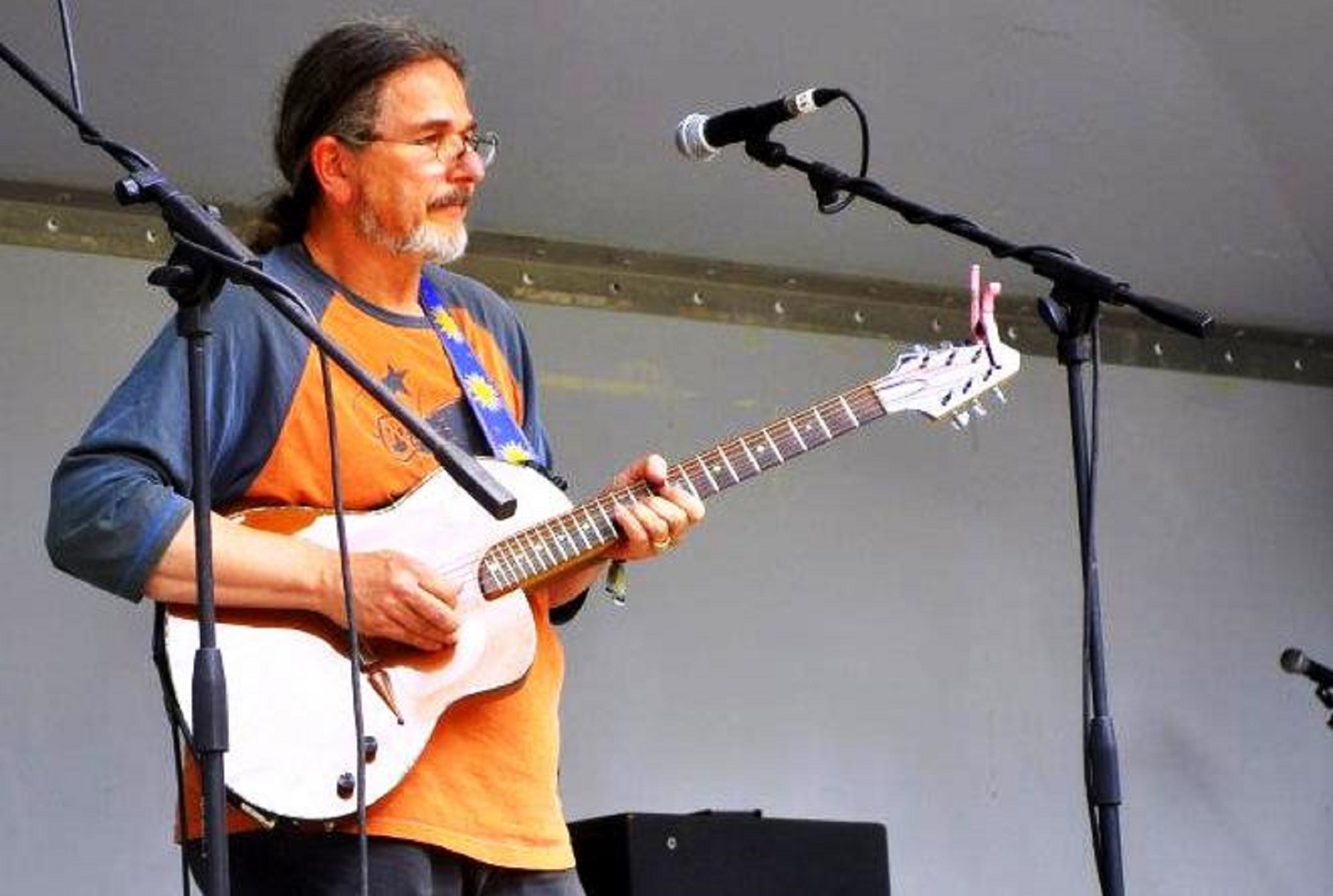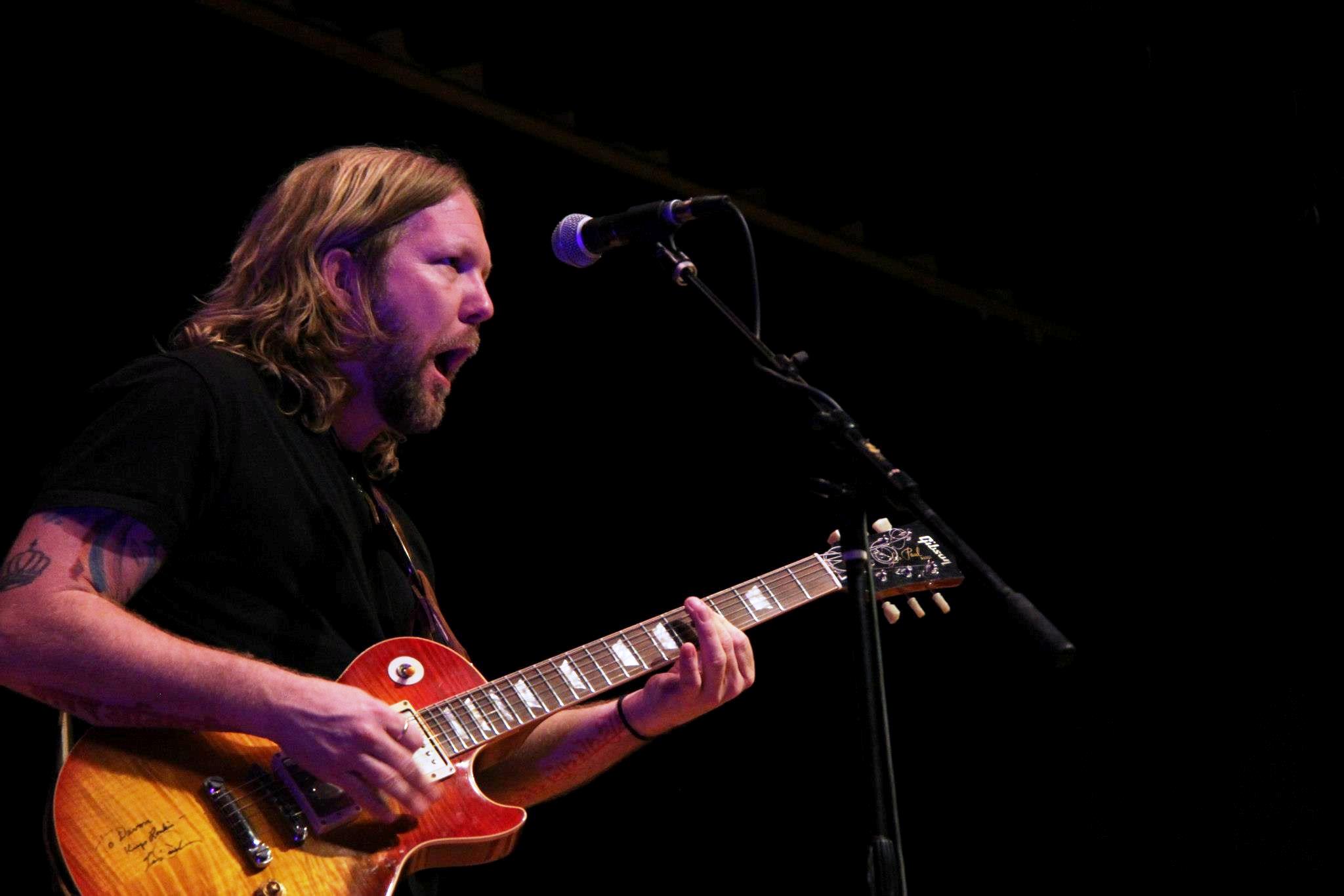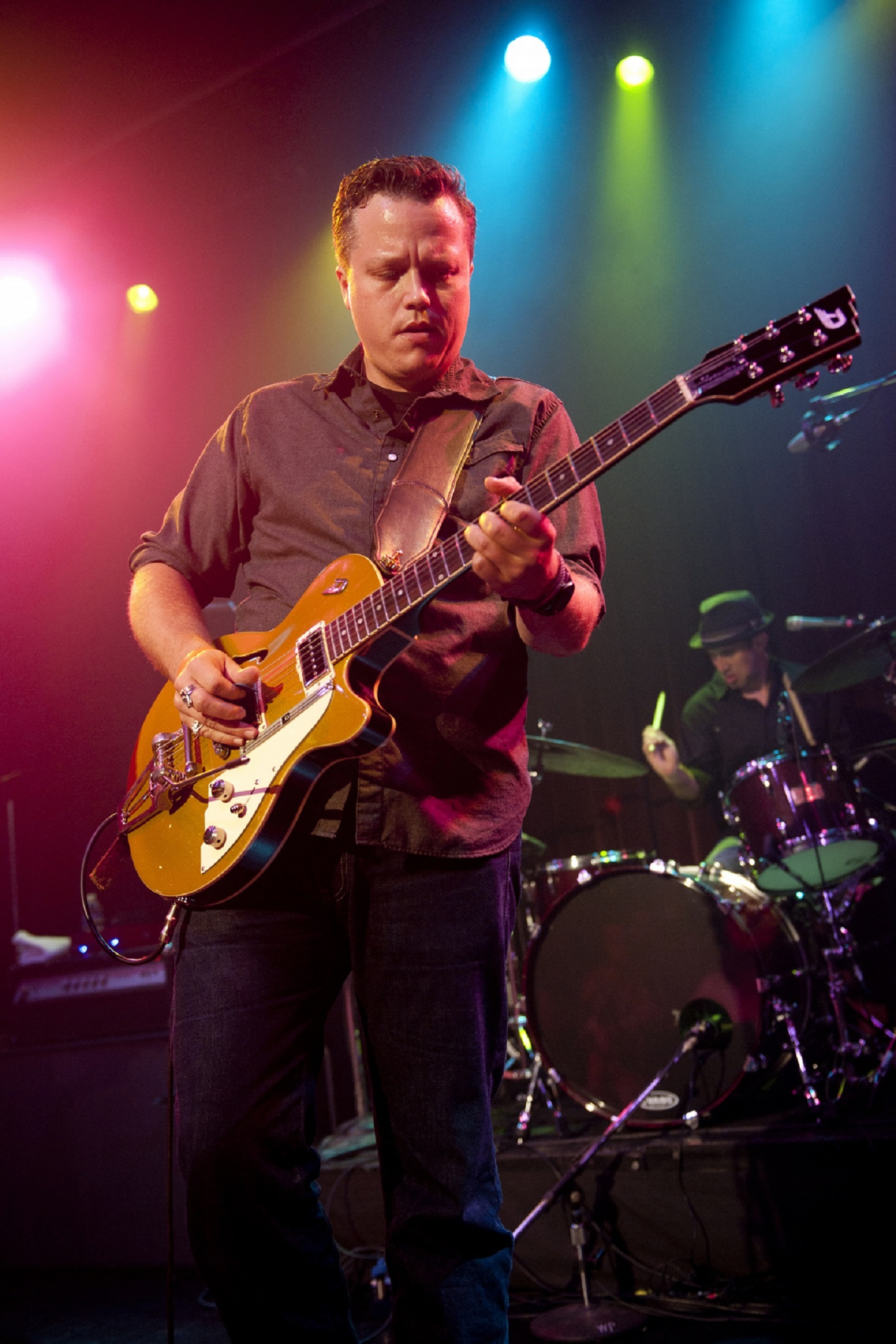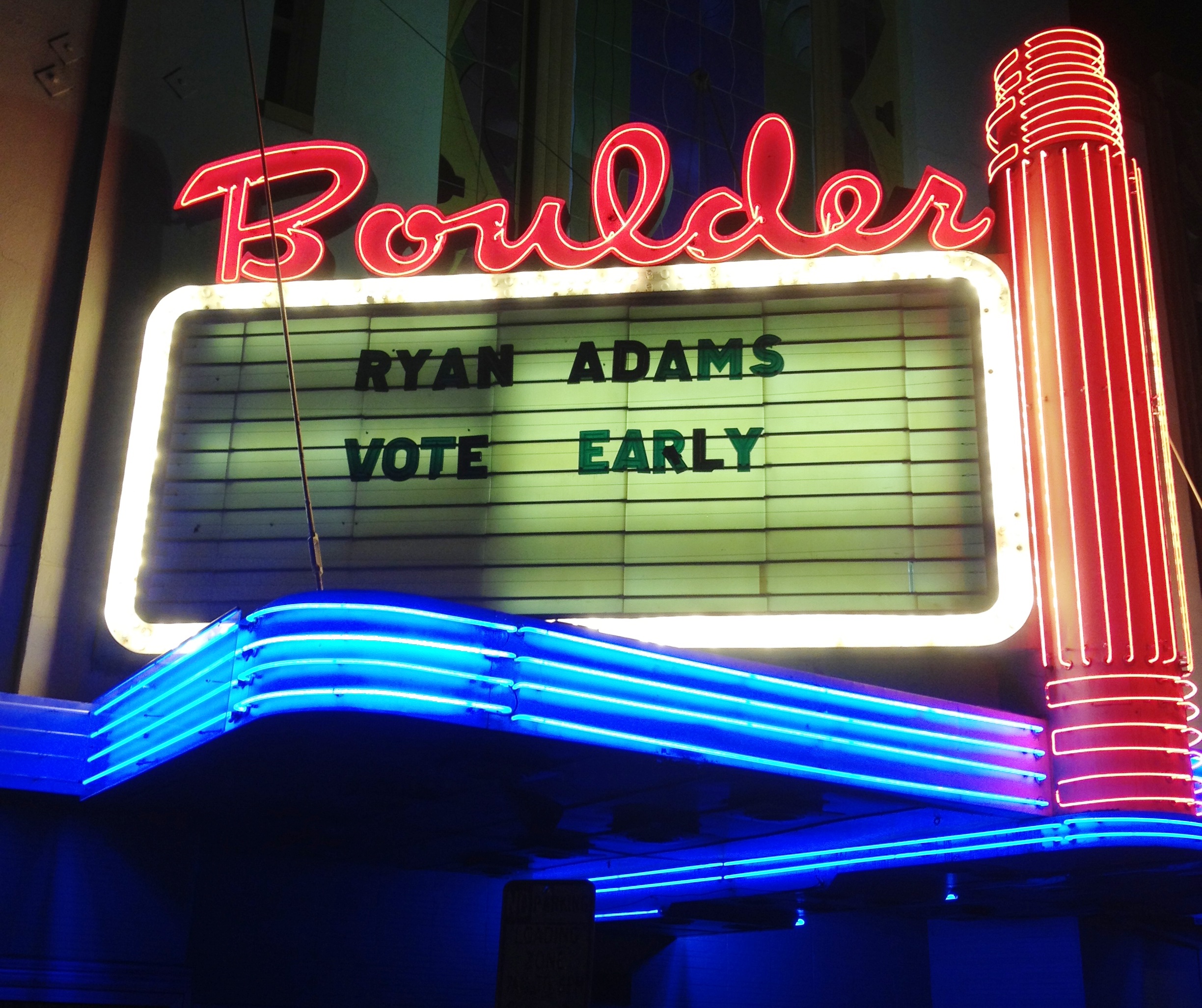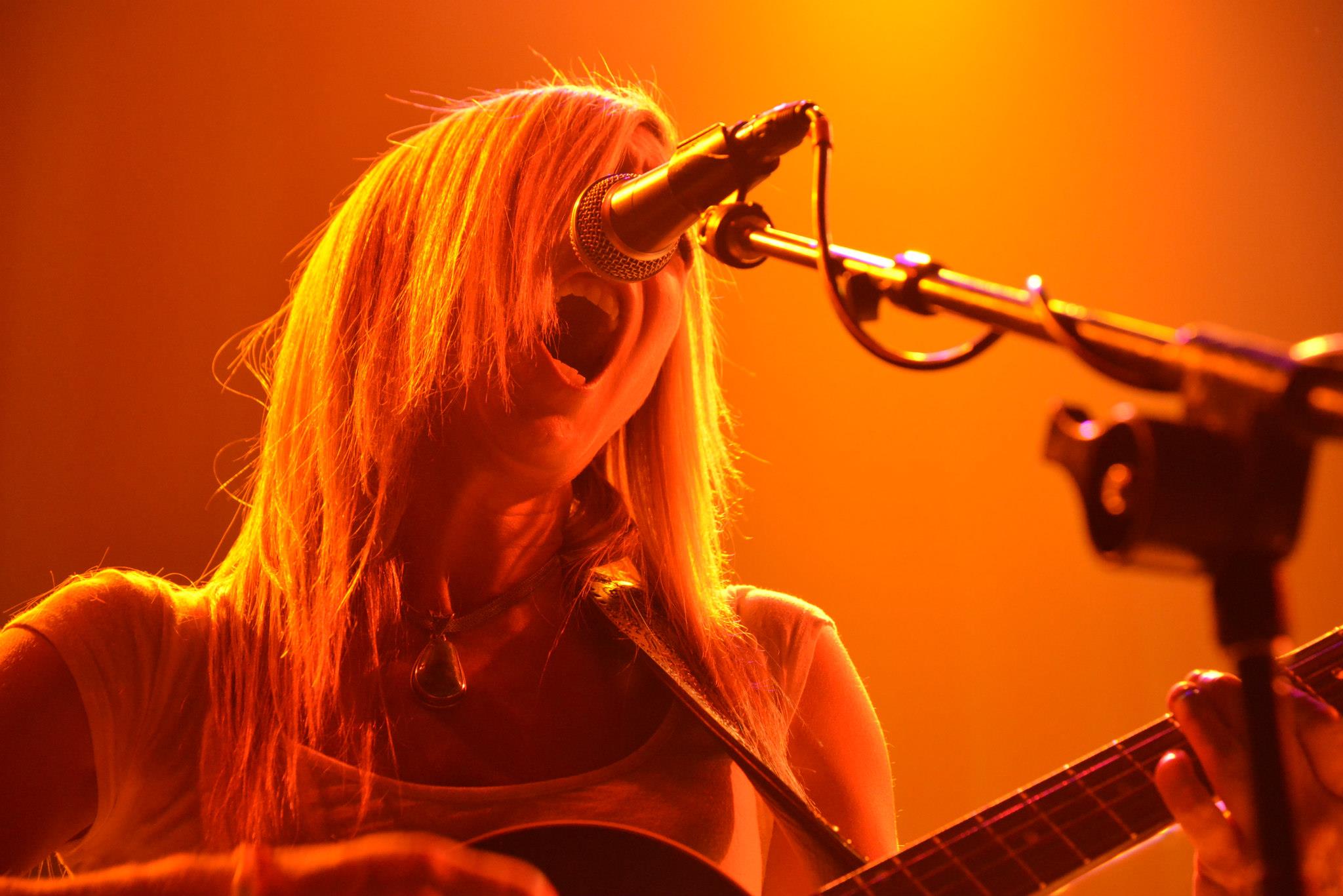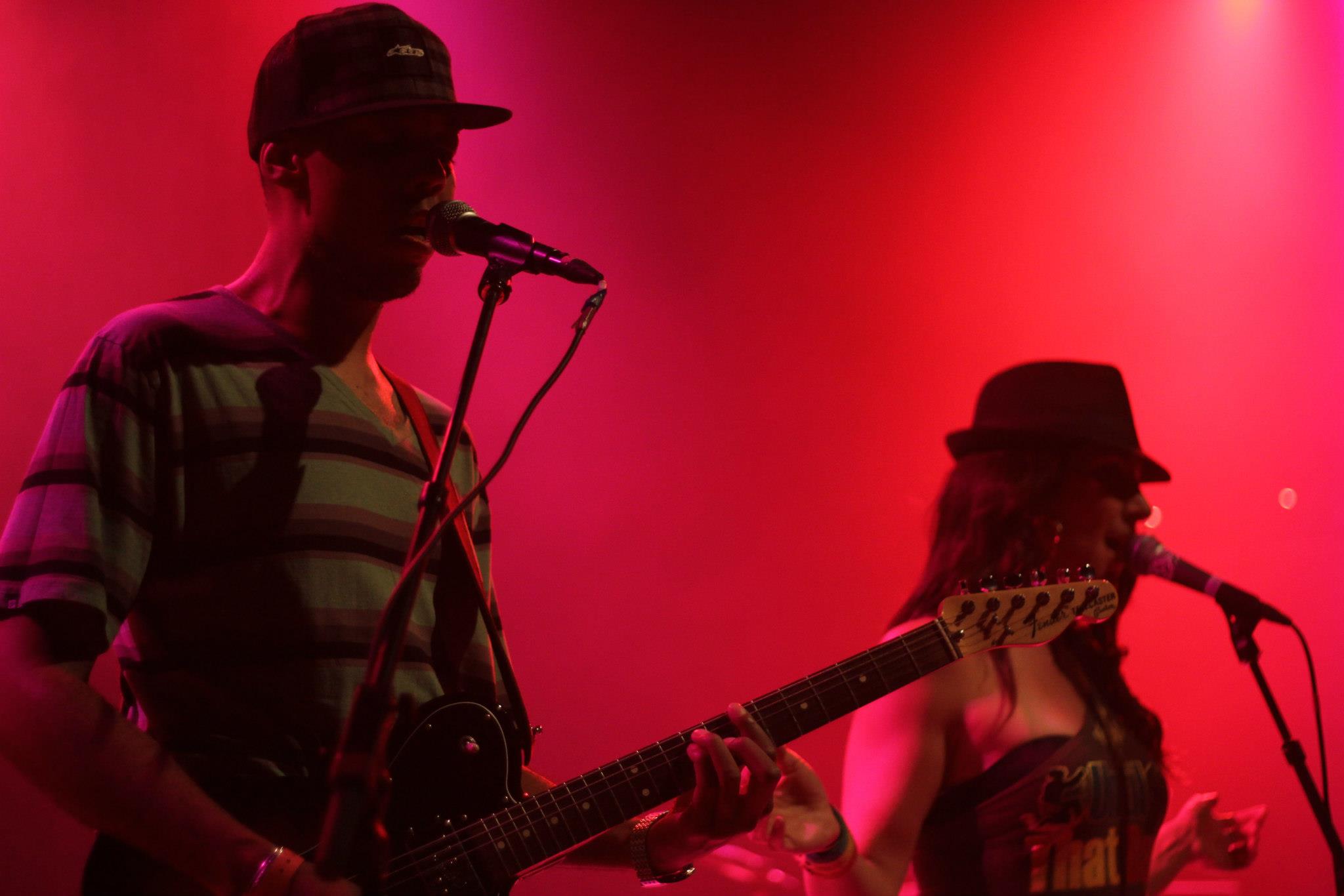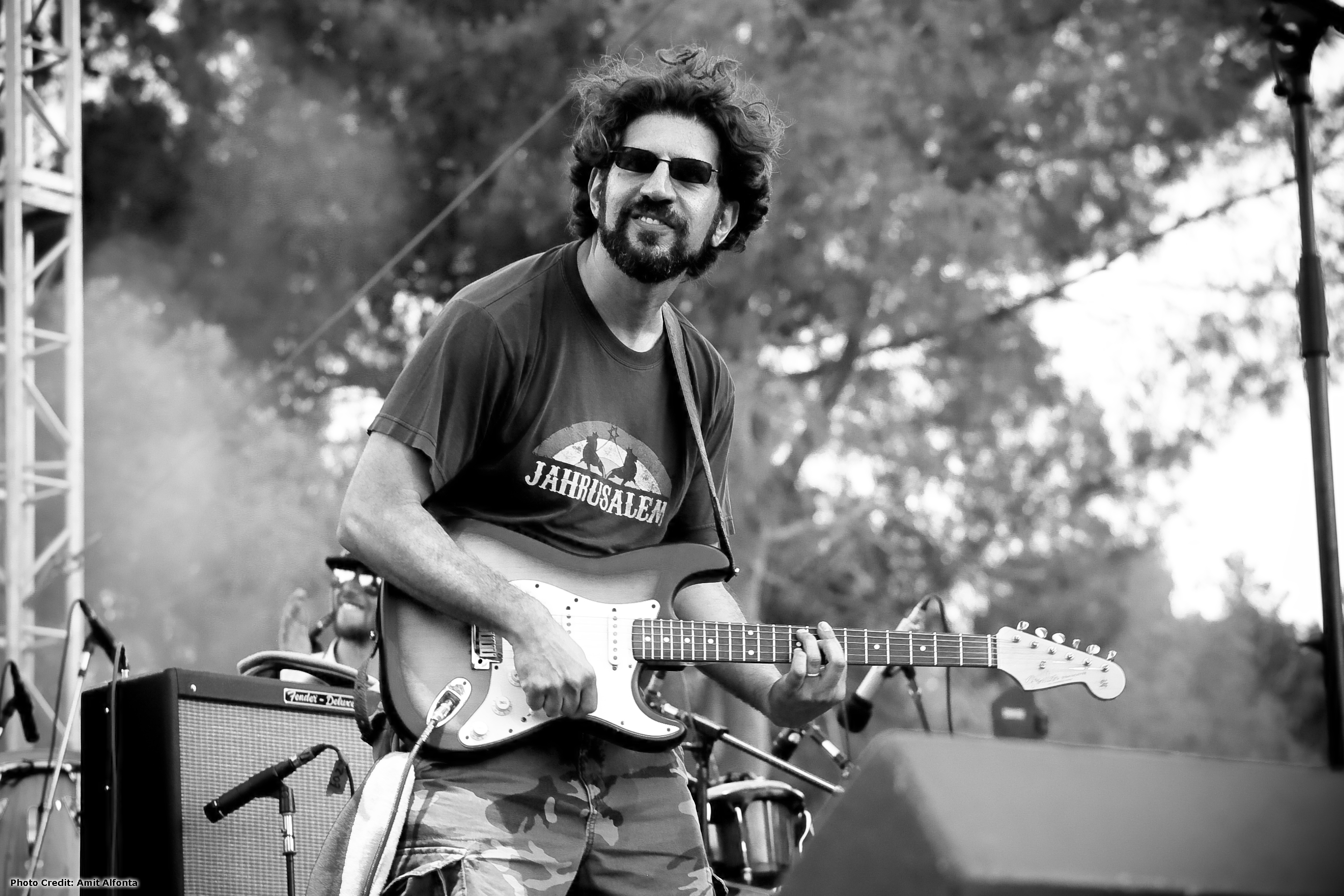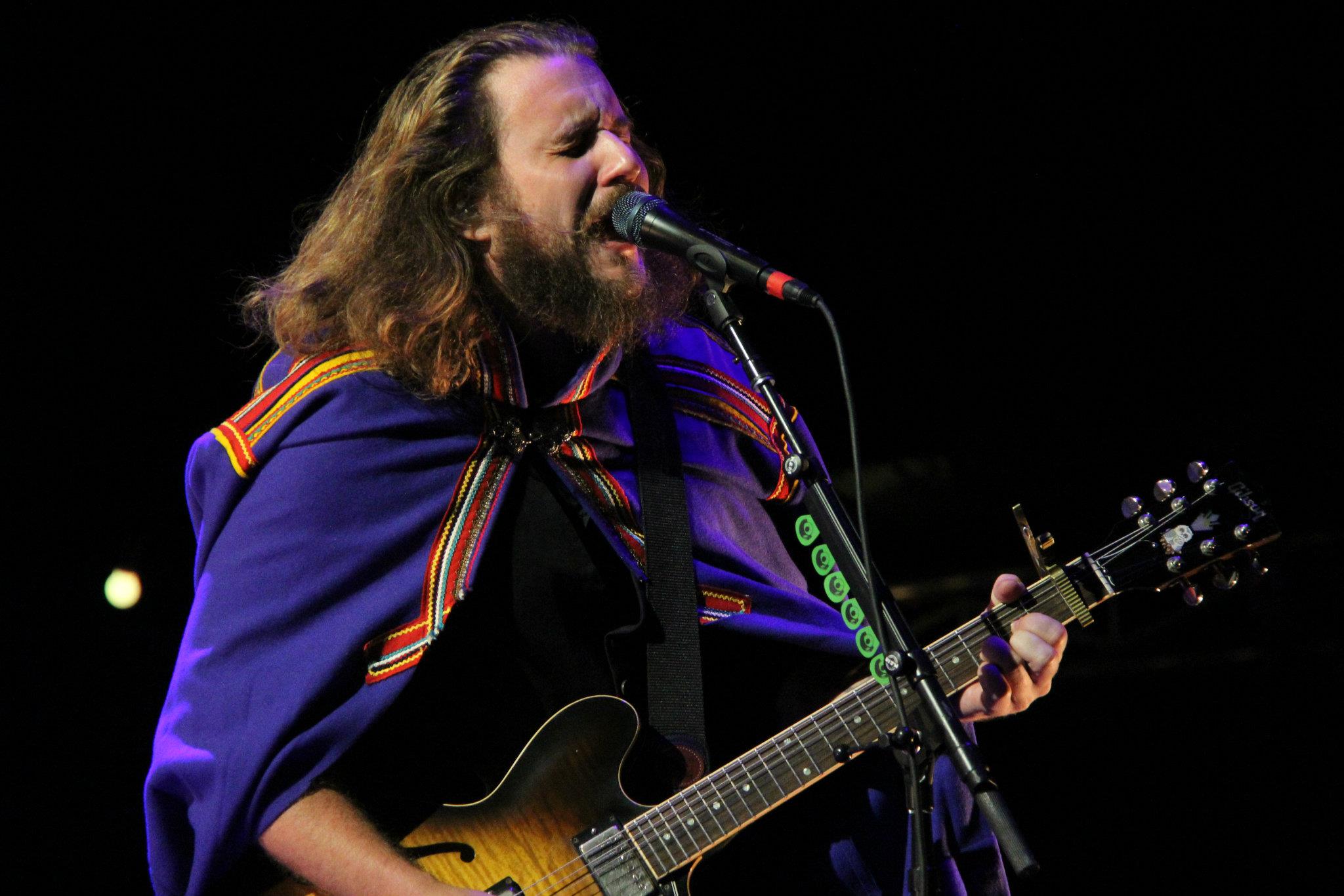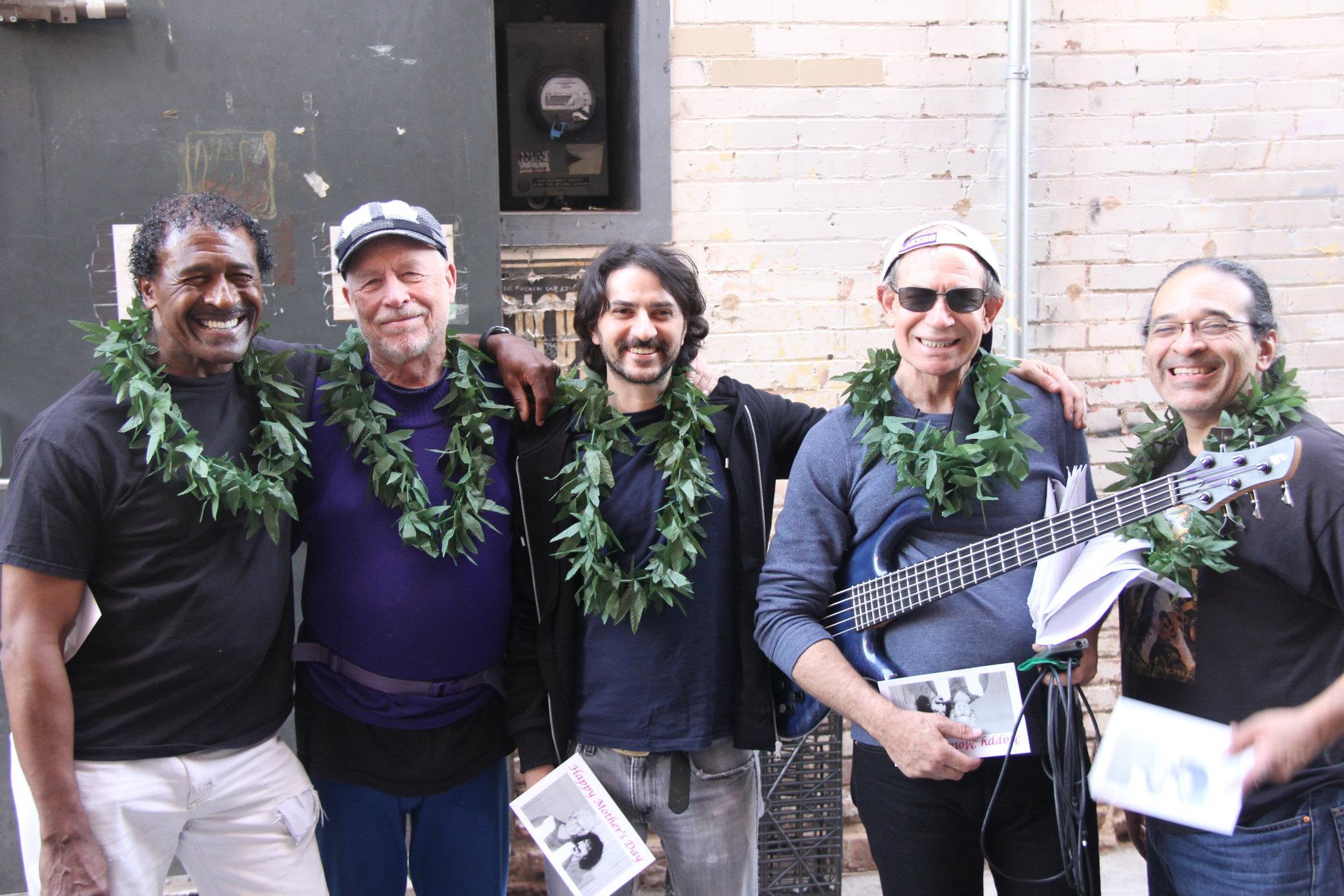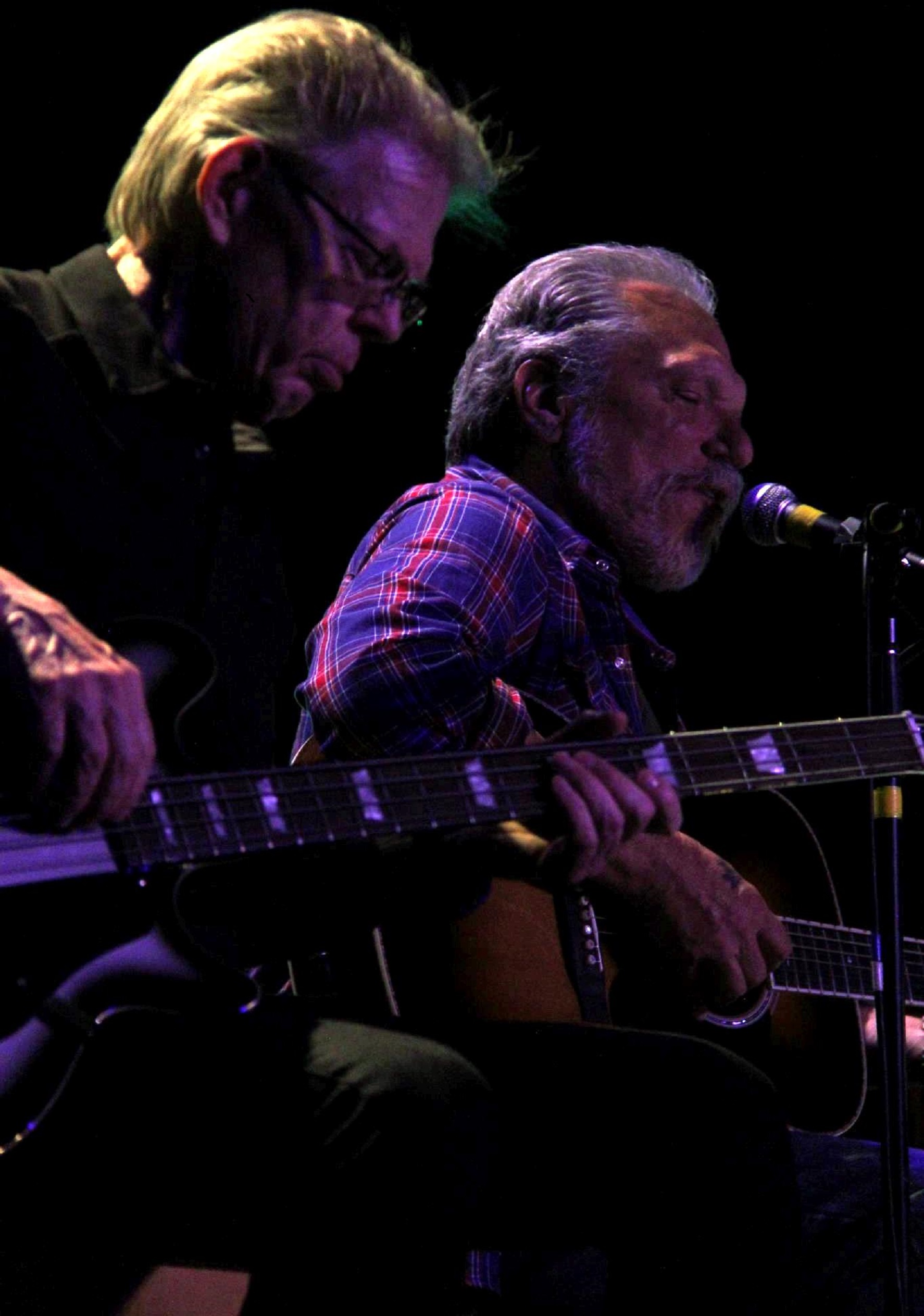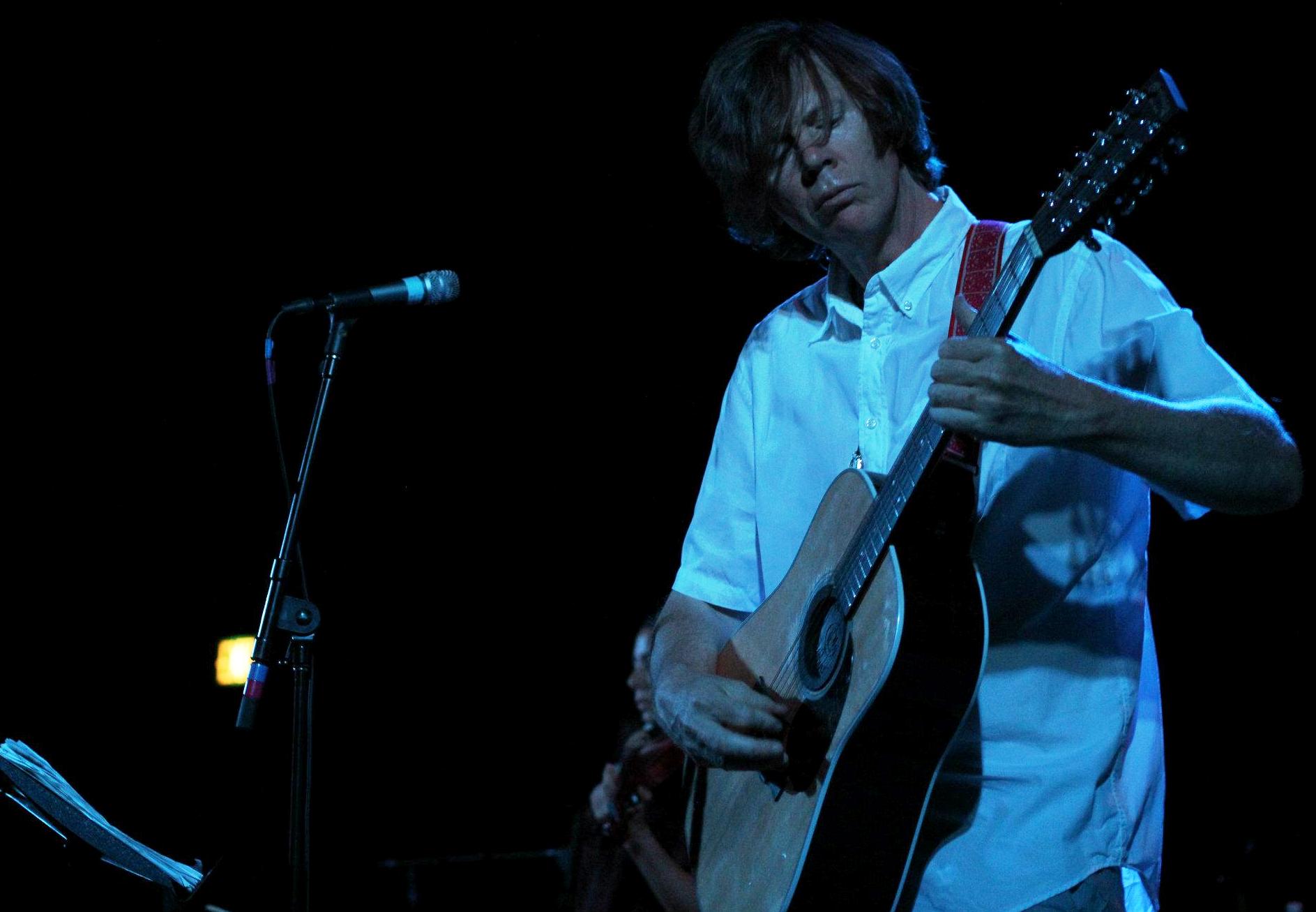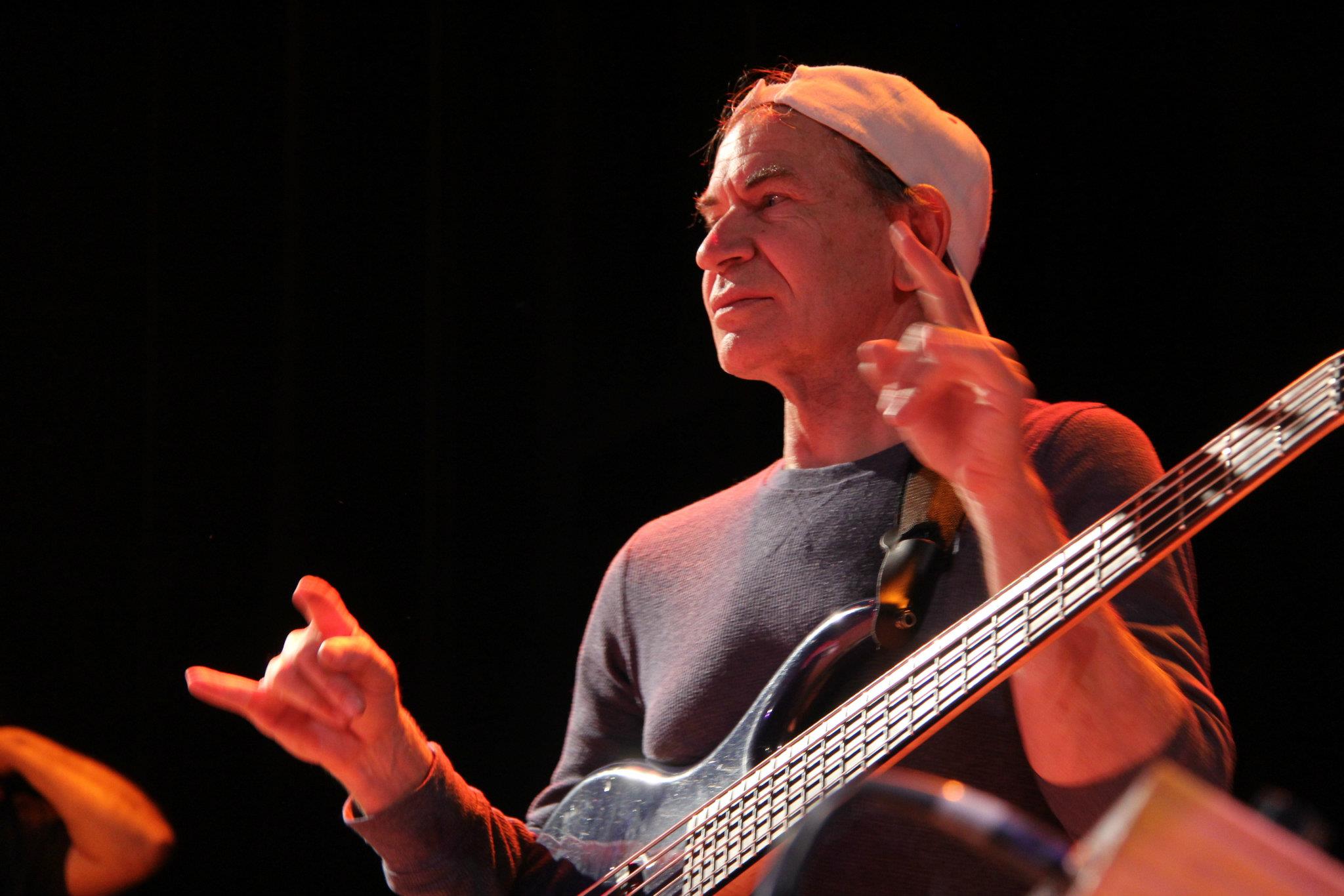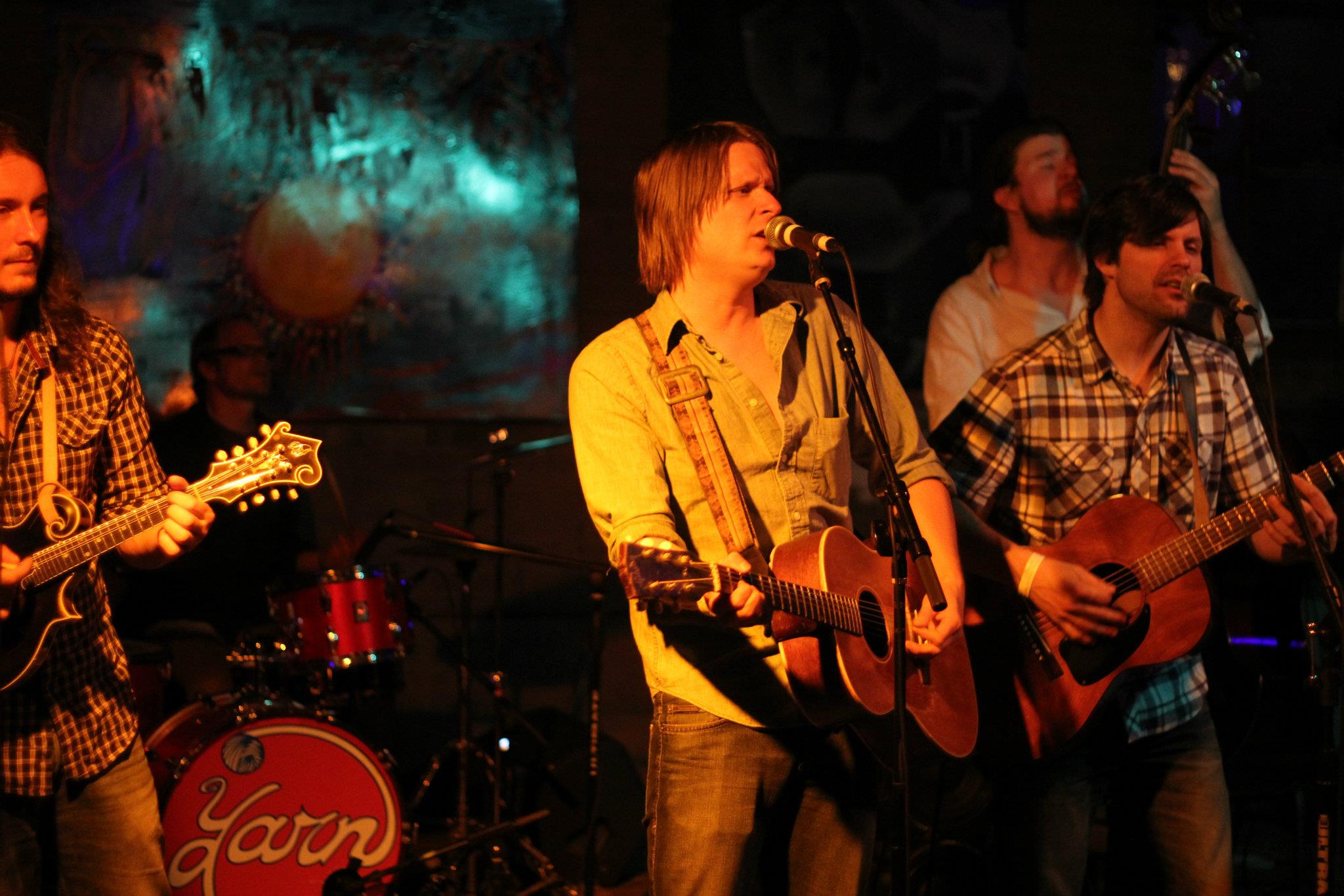Despite coming from a bloodline rich in southern rock and roll history, Devon Allman has always marched to his own tune. The son of Gregg Allman and front man for Honeytribe and Royal Southern Brotherhood talks in depth about his new solo record, life in a supergroup, and his love of music.
GW: Lets talk about the new record. You’ve made your mark with Honeytribe, and more recently as a part of the super group Royal Southern Brotherhood (debut came out last year), and now here we are at the long awaited solo album, Turquoise, which is due out the 12th of this month. An amazing group of songs on the new album, and they seem to have a personal tone to them, almost a longing for a break from life on the road. Could you tell us how you came to the point where it was time to release a solo album?
DA: I had always wanted to do a solo thing. I’ve had Honeytribe together for 12 to 13 years, and when I would think about making a record with Honeytribe, even though they were my tunes and I was the quarterback and producer for the records, I still had to work within a framework of what Honeytribe was supposed to be. With doing a solo record, there is no framework. There are no rules. There is no “oh, you need to stay within this genre” or “you need to play this type of song, or that type of song”—it was wide open. And when I had written a couple of songs for the Royal Southern Brotherhood record, I noticed that they were more laid back. There wasn’t any aggressive tendency there; they were just songs. That’s what I wanted for the solo record. What I gave to RSB is what I want to magnify and make as my solo record. So that’s really what I did. So, by saying that there is a personal thing…I think records should be personal to a certain extent, but not to where they’re just self-engrossing. People still need to be able to relate to them. But it’s funny how when I look back at the record now—I recorded Turquoise six months ago, and it’s funny how the theme in the record seems to be home. In the beginning of the record, I’m young, I’m ready to prove myself and leave home, and by the middle of the record I’m freakin’ ready to come home. There’s a theme there for sure. I think that when you really just give yourself to this life, that’s just going to be part of it.
GW: Do you feel that working with the RSB (which is basically at the opposite end of the spectrum as a solo release) has made you want to create something more personal?
DA: I didn’t really walk away from the first year with Royal going, “I want to do something personal,” it just really happened organically. These were the songs, and the lyrics had been bouncing around in my head, and bouncing around on my iPad for the last year, so it just came organically. I think there’s some personal stuff throughout my work with Honeytribe as well—I think it might just be me as an artist.
GW: Would you tell us a bit about the players on the record?
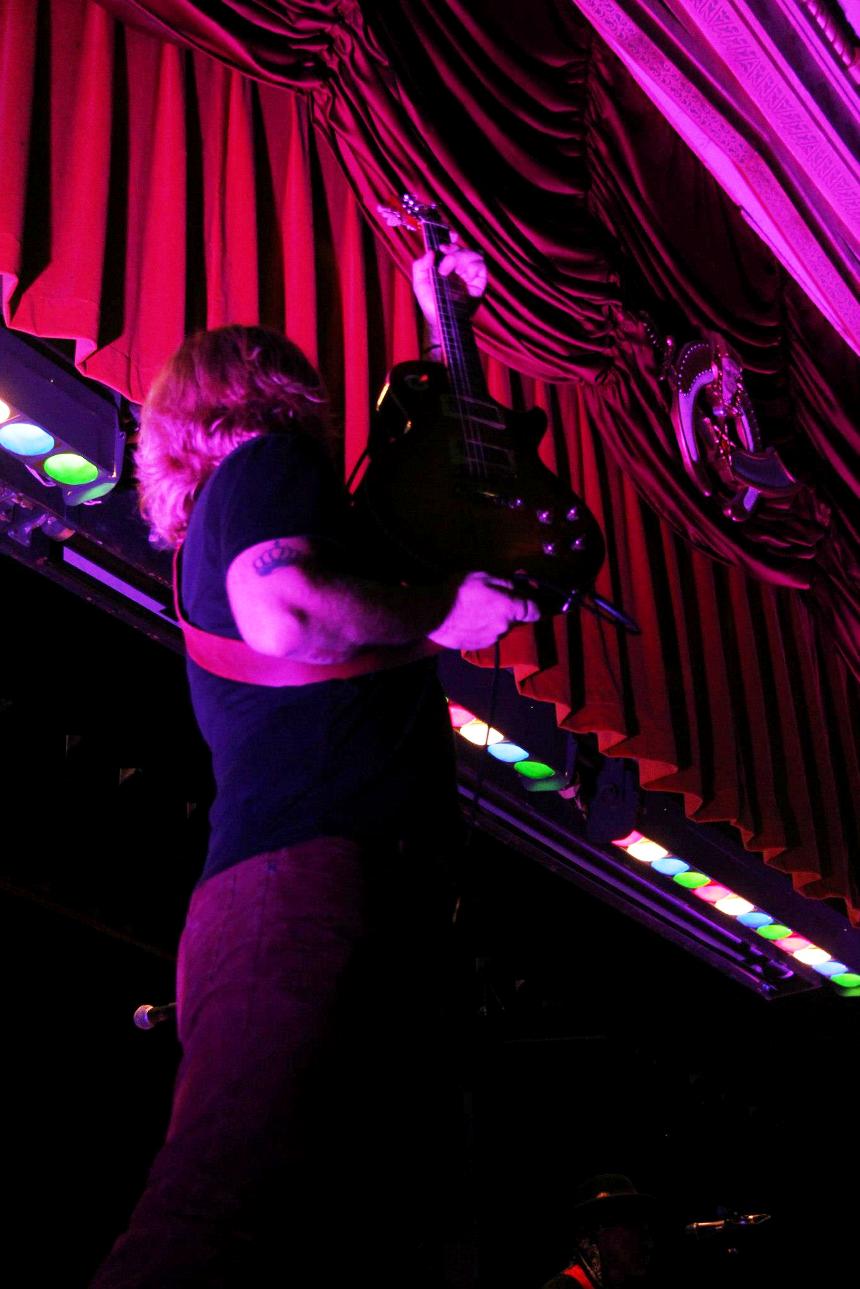
DA: Yeah, man! Yonrico Scott—the drummer for Derek Trucks for 15 years, and the drummer in RSB—was on board to play drums on it. He has become one of my best friends, I love the man dearly. He can just do anything, and play anything. You show him the tune—sit down with an acoustic, take him out on the porch and show him the tune—then you go back in, and in two or three takes, it’s done. There’s nothing better than that. And not only is it done—like you’ve gotten through the tune—but it’s done, and the level of mastery is there. That’s how good he is, he’s truly incredible! Myles Weeks is a really tasty bass player who plays with Eric Lindell Band, and they’re out there on the same circuit as me. I saw those cats one night, and the guy plays upright—he’s just got this really killer touch, so I just hit him up. I was like “Hey, man, I’m doing a solo record in a few months, and I want you on it,” and he agreed. Luther Dickenson—he goes without saying—he’s a monster, and he’s a friend. He came in and threw down on the first cut, and it was just awesome! Samantha Fish came in and did the duet with me. She’s a monster talent! We have the same label, and we just hit it off as buddies, and we like all of the same music…when they were calling Susan Tedeschi the next Bonnie Raitt…I think Sam is the next Susan Tedeschi, and eventually the next Bonnie Raitt. She’s just outstanding, and to have her on the record is really great. Ron Holloway, who has played with Dizzy Gillespie and Warren Haynes—an amazing sax player—he came in and blew sax on a tune. And I can’t forget—on half the record, the real tasty (Hammond) B3 that you hear is provided by Rick Steff of the amazing Memphis band Lucero. Lucero is sick! I’m their biggest fan; I’m in the front row, probably bugging the shit out of Ben Nichols, because I just love that band so much.
GW: Would you tell us about the recording dynamic differences between RSB and the solo band?
DA: It was similar in that both recordings went by really fast, and Grammy-winning Jim Gaines produced both records. Gaines has become like a mentor and an uncle to me. After working with him on the Royal record, I begged him to do the solo record, and he was really great. The differences…obviously, on the solo record, I’m going to be in charge of the temple of the songs—how they feel, how they’re flowing, what speed we give them, and how we end them. There’s more scrutiny for me to take over and say, “Hey, this is what I see here, and this is what I hear.” With Royal, it was a lot more of Jim Gaines with Mike (Zito) and I going back and forth, because Mike would bring in tunes, and then Mike and Cyril would write a tune, then Charlie brought in a tune. It was much more of a pass-it-around, group effort—and everybody that was in that band trusts the other guys. If I walk in on a session, and Yonrico and Cyril are laying down a tune, my ego doesn’t go “What are they doing in there by themselves without me?” It’s not like that. It’s like, “Kick-ass, this is going to be great!”
GW: So you didn’t see much of the “too many cooks in the kitchen” syndrome with RSB?
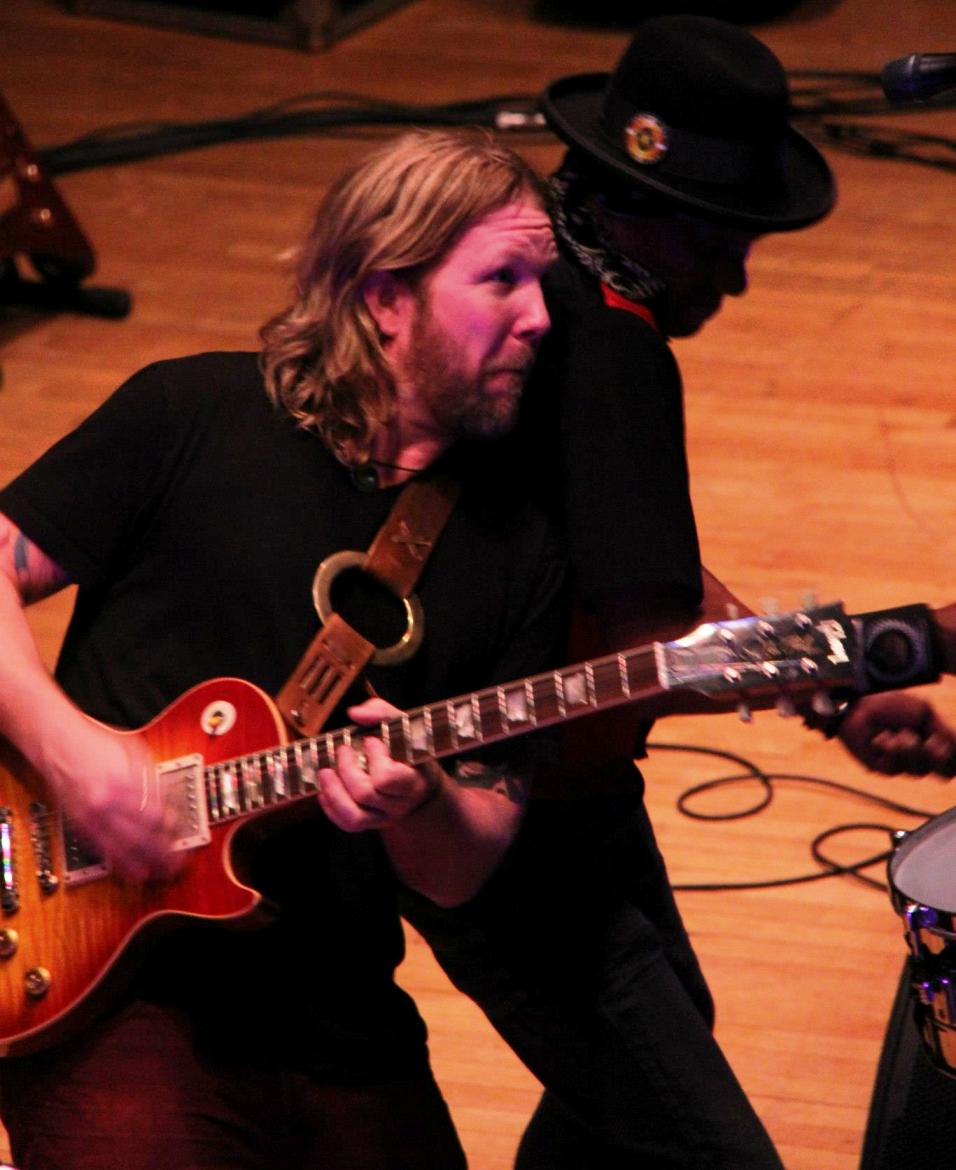
DA: When I got the phone call to put that band together, I said, “I think you’re nuts! It sounds great, but that’s like putting five quarterbacks on the field and saying, ‘okay, guys, go play football.’” Who is going to catch the ball? Who’s going to kick it? I remember telling my manager, “That’s the most awesomely horrible idea I’ve ever heard.” Then, I remember thinking ‘Allman and a Neville in the same band, how cool is that’? And that’s what made me try it. I said, “Let’s try it, and see if we can write some tunes; if we can write tunes, let’s get in a room and try to jam; if we can jam, let’s book a super group gig and see if we can have fun with it; maybe ten people will show up, but let’s go do it and see what it feels like on stage.” Well, it sold out, and we didn’t have a record deal or anything. So, it was like, “Shit, let’s go make a record, because this is working”. So it was one of those things where even though it was an idea of what it would be like for an Allman and a Neville to work together, it still had to be magical, and really, really work, or it’s just bullshit! It had to be special. I had already pounded out 12 years of my career, touring really hard worldwide, and I couldn’t just walk out of that without it being really special.
GW: The Honeytribe records were recorded at the Ardent Studios in Memphis—
DA: There was a lot more money back then, you see? (laughs)
Go ahead, I was just trying to be a smart-ass.
GW: But the RSB record was recorded in Louisiana at Dockside. Then for Turquoise, you returned to Ardent, is that correct?
DA: Actually, I did Turquoise—all of the basic track at Bessie Blue Studios in southern Tennessee—which is Jim Gaines’s home. I took the basics and went over to Ardent and recorded all of my guests there. I recorded Luther, Samantha, Ron Holloway, Rick Steff—that was just an easier place for people to convene.
GW: In regards to Ardent, I read that it was a special place in your past, stemming from an experience in your teenage years when the Allman Brothers were recording there. Would you elaborate on this?
DA: I left home really young and I bounced around. I lived in New York and in Nashville, and then I landed in Memphis. My manager at the time was saying that Memphis had a great rock scene. I moved there, and I got a call from my old man. I was 17 years old. He goes, “hey man, I’m making a record in Memphis with Tom Dowd at Ardent Studios. It’ll be great, son, I’ll be able to see you almost everyday for a couple of months”. I was like, “Awesome, you don’t mind if I come down there and just hang out?” He was like, “No, man, why don’t you come down and hang out?” So, I made a point to be down there every single day. I was there for every day of every session. I just wanted to soak it in. I was in there everyday because I wanted to watch Tom Dowd at work. Even though I was a punk-ass 17 year-old, I knew how incredible that man was. So, I got to see that man at work, everyday, for 50 or 60 days and it was incredible. I got to see Dickey Betts play guitar everyday for 50 or 60 days. I would sit out in the atrium with my acoustic guitar, and Warren Haynes would come out there, open the sliding glass door, smoke a big, fat joint, and he’d just look over at me and be like, “That sounds pretty good.” It was cool, and I finally felt like I’d been accepted into my family. I can remember sitting there, and during the last few days of recording, having this melancholy set over me, and thinking, “Man, I’m not going to be able to come hang out at Ardent Studios anymore,” and I made a promise to myself. I said, “Some day I’ve got to make a record here.” I ended up making several there, and coming full circle, and it was really pleasing to walk in those doors and think, “Yeah, I’m not a hanger-on, I’m coming in here to make a record!” So it’s always been really special—I mean, Led Zeppelin III—parts of it were done there, and some amazing, kick-ass records.
GW: You’ve cited influences such as the Rolling Stones, Santana and Hendrix. Do you draw any influence or inspiration from any current, modern rock outfits?
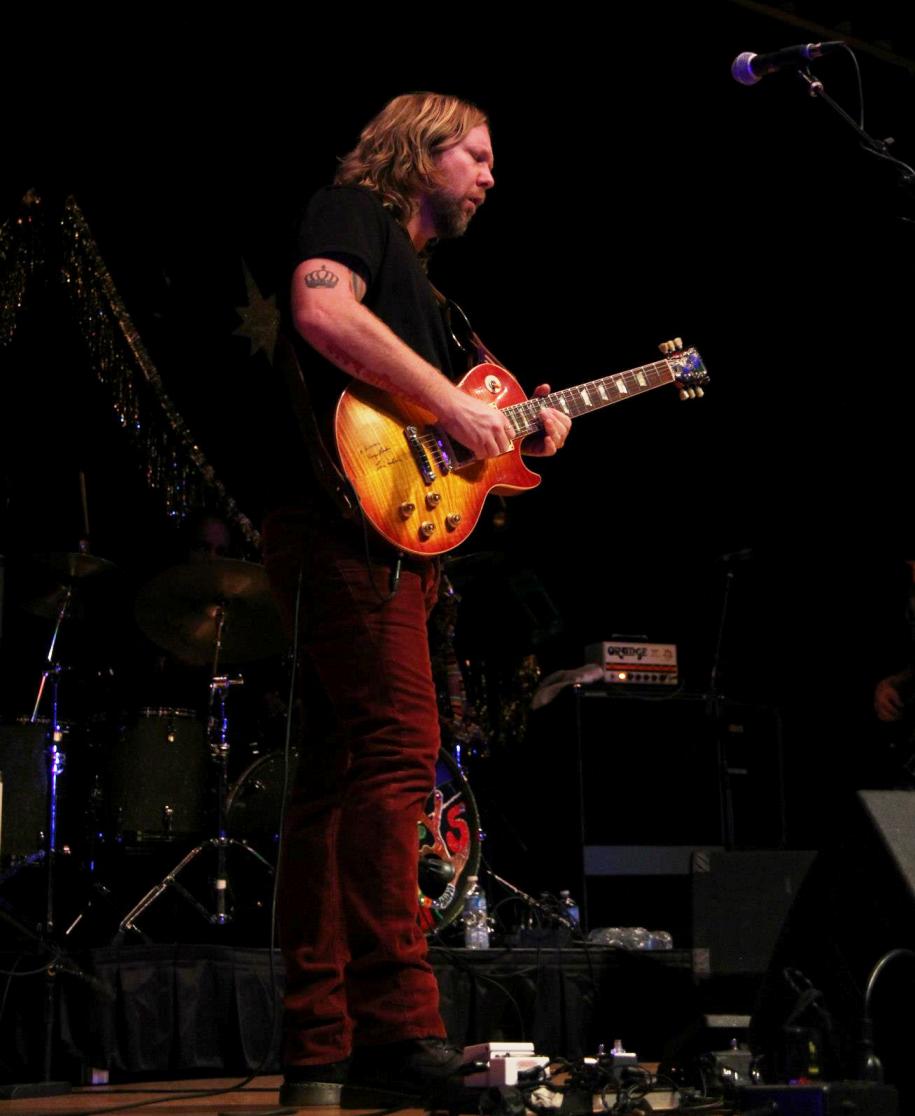
DA: When you start hitting on words like “influence” and “inspiration,” there are a couple of different things. For instance, B.B. King influences my style, same with Curtis Mayfield and Keith Richards. But as far as being inspired, there is a lot of new music out there that inspires me. While I may not take a direct influence from them, the inspiration is there. I love Lucero; they’re one of my favorite bands. I love the Shins. I love Thievery Corporation. I like a lot of ambient stuff. I have a lot of stuff on my iPod that would make people go, “Really? You?” But that’s healthy; I think that listening to a lot of different kinds of music is important. I just bought some vinyl of some 1975 funk from Thailand that I can’t wait to spin. I think it’s important to listen to everything. And, above all else, I’m a Zappa-head.
GW: You’re preaching to the choir right there. (laughs)
DA: As long as you’re there, you’re probably everywhere.
GW: Would you give us the name of an artist or band that you are excited about, that has yet to break into the public ear?
DA: There are two artists right now that I am really excited about, and I may be working with them in a professional capacity. I’m definitely producing one, and I’m going to play on the other ones record. I’m in the process of creating my own record label, so there could be some exciting prospects for these artists. They are both very young and very talented. One is Erica Blinn—she’s a singer/songwriter out of Columbus, Ohio. She’s very salt-of-the-earth. She’s hot shit man! She plays harmonica, singer/songwriter, great stuff! She’s going to definitely be something. Then the other band is Delta Sol Revival. DSR is lead by this 19-year-old guitar virtuoso. They are from Springfield, Missouri, and they are totally badass—jam band with a Latin slant and a jazz slant. They are both young artists, and they are developing, but what they are developing is something very real and very rich.
GW: When is the first time you met your father?
DA: I was 16.
GW: Had you started playing music prior to that meeting?
DA: I fell in love with music at age five. Luckily, we had a killer radio station in Corpus Christi, Texas. We’d be driving down the road and I’d ask, “Hey, mom, who is that?” She’d say, “Fleetwood Mac.” I’d say, “Hey, mom, who is that?” She’d say, “Oh, that’s Paul McCartney and Wings.” Then, “Hey, mom, who is that?” She’d say, “That’s your dad.” I was like, “whaaaaaaaat? What are you talking about?” (laughs)
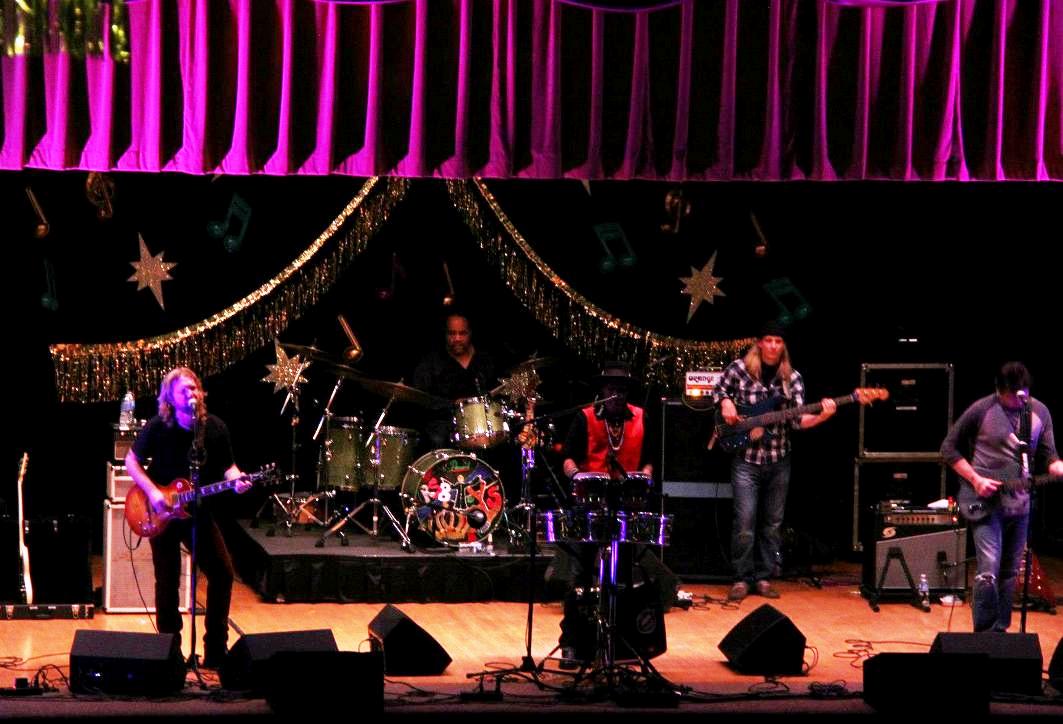
GW: I can’t even wrap my head around that.
DA: Most people can’t, because it’s a trip. It didn’t really sink in until later. I was jamming in garage bands…I fell in love with music before I knew who my father was. I had multiple bands before I met my father, so I knew I was doing this. It wasn’t like “Oh, dad does this, it’s cool, let me try.” It was, “This is in my being, I love this, and this makes me feel complete. It’s really funny when you get the misconceptions out there, like “He (Devon) grew up on a tour bus, of course he plays.”
GW: Despite the fact that you are the son of Gregg Allman, you’ve always done your own thing musically. And as you are genetically predisposed in terms of musical talent, and you have some of the same attributes as your father, you’ve developed your own style. A lot of kids of music legends have a hard time finding their own voice and existing outside of their parent’s shadow. What is your secret?
DA: When you ask, “What’s the secret?”… The secret is that I love to play music and I’m a really hard worker. I’ve been in a van, touring 200-300 nights a year for a decade, like anybody else that got out there. That’s my secret. I didn’t expect any special treatment. I’ve played for $200 and tacos for the first two years, and I wanted to work it. I wanted to turn around and say, “I made this; not my dad, not my family, not anyone else.” I started small, and it started to grow and grow and grow. Sometimes I stop and I trip out…I still see the kid from Corpus Christi, Texas goin’, “Hey, mom, who’s that?” And that’s still just me.
GW: So, do you feel that by not “growing up on a tour bus,” so to speak that it was easier to develop your own style?
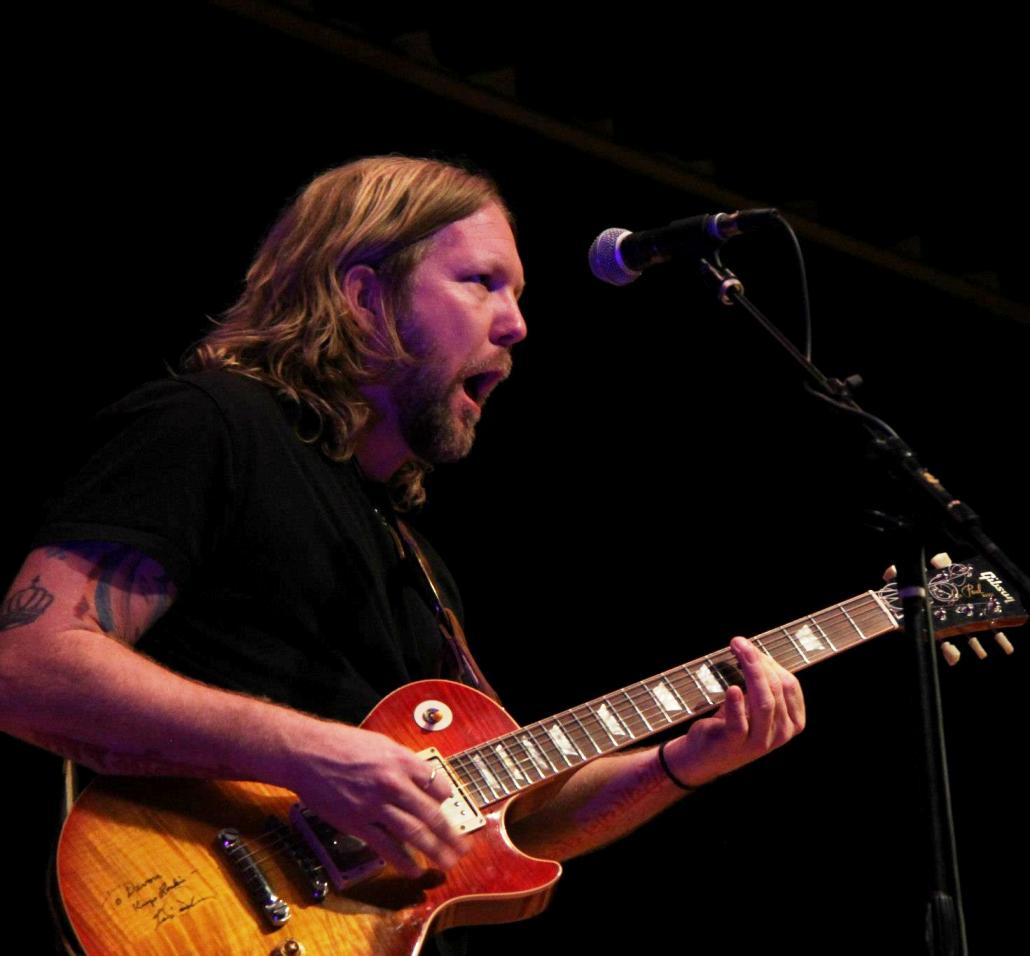
DA: So much. The thing about growing up away from that circus is that I got to develop my own passion for music that wasn’t tainted, and I got to develop my own work ethic of “I’m going to do my own shit. Period.” I don’t know if those things would have been as pure growing up in that circus.
GW: You’d been playing in bands, and you eventually got in contact with your father and more or less began a relationship. How did he feel about you pursuing a life of music?
DA: His first reaction was, “Man, you don’t want to do this. Are you crazy? This is the shittiest business around.” But he knew my passion because his is the same. At the very core, common denominator of my father and I, I would say the one thing that is absolutely equivalent is that we both really, really love to open our mouths and sing. We love to play music and sing. So, you deal with all of the bullshit to get to the real stuff…the crappy business deals, the six hour layovers in airports, the rides in the vans—that’s what you get paid for, the stage time is free.
GW: Devon, you have a boy, who’s around 12 years old know, right?
DA: Yes, he’s a 12 year old. It’s the best job on the planet.
GW: Does he show any inclination toward music?
DA: He’s very much a normal 12 year old. He plays basketball, he plays video games, he’s very smart, and he gets great grades. He’s been playing piano for four years and guitar for a couple…and, it’s a dabbling right now, not an obsession. I don’t know if the bug will bite him. The abilities are all there; it really is cool to see that it does go down the generations…it’s present and if he wants to use it, it’s there. And I’ll probably turn to him and say, “Man, you don’t want to do that.” (laughs)
GW: In addition to the fine catalog of music that you’ve amassed, you’re dabbling in some culinary endeavors as well. You’ve got your own hot sauce, and you’ve been doing some dinner shows. Would you tell us about this?
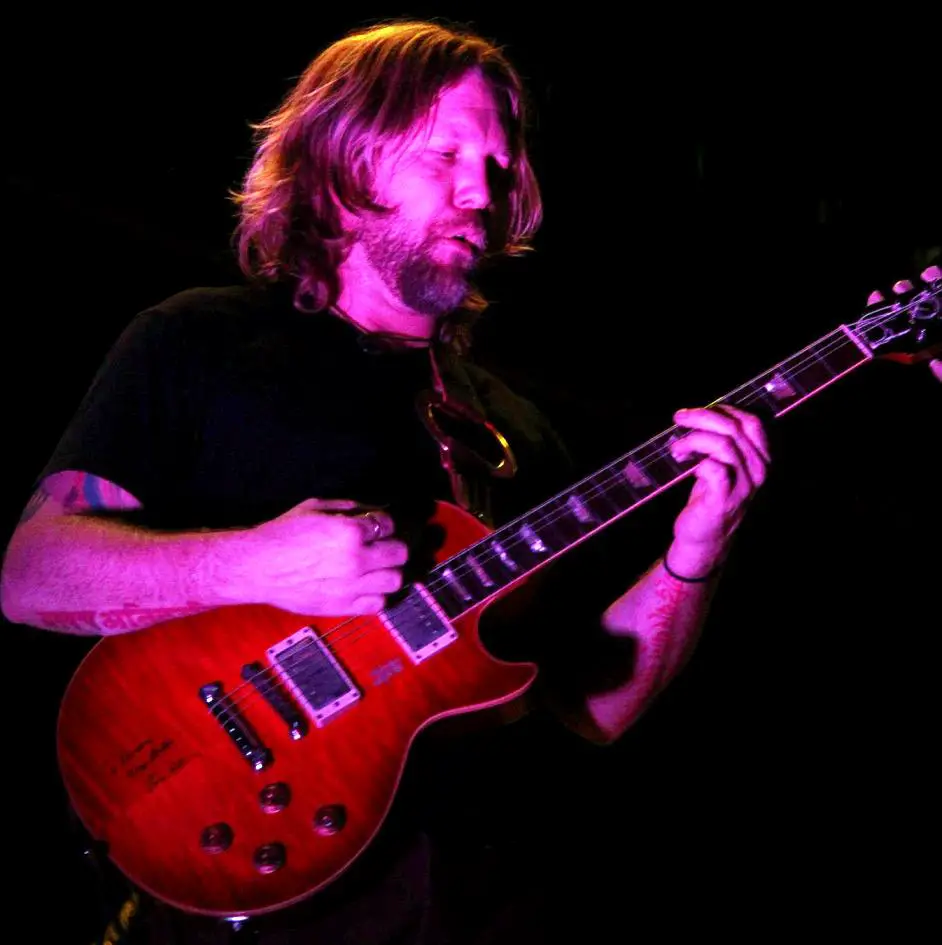
DA: Cooking is a definite passion. When I’m whining about wanting to come home for a while, I just really want to cook. It was really cool to put my name on a hot sauce last year and it’s been marketed really well and it’s gaining new fans everyday. I want to make people happy with hot sauce. The dinner shows are a really great idea because it incorporates my love of cooking with my music. When you come to a dinner show, you’re getting a show from me, but before the show you’re getting a meal where every single thing on the menu is my recipe. It brings me closer to my fans. I get to go on stage and almost be in stand-up mode and talk about food. It was something that was really just an experiment to see how well it would go over—we did it in Chicago last week and it was super successful. We’re going to start doing it in other cities.
GW: It looks like you have a slew of shows this year with the Brotherhood, starting next week with five nights in Colorado. Will you also tour with the solo band in support of Turquoise?
DA: When everybody came into RSB, we decided it was going to be priority. When we had time off from it, we would do solo touring. So that kind of blueprinted out the rest of the year. I do have some holes in my schedule where I will tour with the solo band. We’re going to do three weeks in March, mostly east coast; and then I think we go back out in June and back out in September. Devonallmanband.com is going to have the all-new online store with the merch and you can get the hot sauce and all of that stuff, and also our tour dates for the solo band.
GW: Honeytribe is on temporary hiatus. Can we expect more from this outfit in the future?
DA: Well, you know, it’s a band that I ran for a long time, and I think that it’s still relevant, but I definitely need to go down this path with the solo stuff and the Royal stuff and get down that path a bit in order to come back to Honeytribe. I’ve already started writing another Honeytribe record, and the record is called Elephant, and it’s a very riff-based ZZ Top/Led Zeppelin/heavy Les Paul/riffy record. It’s really cool, and I would like a chance to make that. Maybe 2015…





